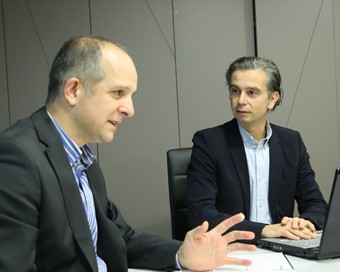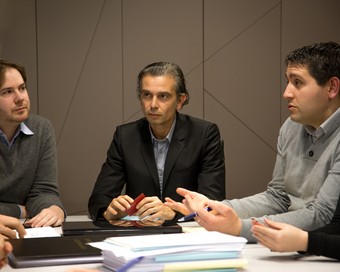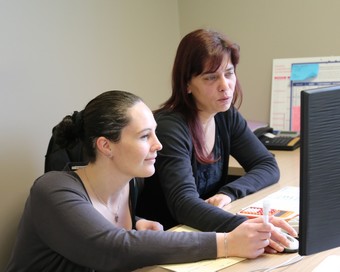juil 17 2024
Guide for Children with Alcoholic Parents
The 12-step support groups for adult children of alcoholics, often abbreviated as ACoA, bring together survivors of parental alcoholics who learn. ACoA helps these individuals overcome issues related to their childhoods. When someone develops trauma issues from their parents or family members it is often known as C-PTSD or complex trauma. It is a type of traumatic experience that occurs repeatedly and accumulates over a period of time until the person develops symptoms of PTSD. Parents that are verbally abusive, neglectful or have addictions may cause trauma in their children over and over through their behavior.
Support outside the family plays a crucial role in helping children build resilience and protect their well-being. Teachers, coaches, youth workers, or even police officers served as role models, offering stable and consistent connections that helped children feel supported. Living with PTSD from an alcoholic spouse is emotionally and physically draining, but there are ways to protect your well-being and encourage positive change.
Growing Evidence of the Impact on ACEs in Adulthood
They start to believe that it’s their responsibility to “fix” their parent. They think that if they can behave—be a model child—and do everything right, they can make everything right. Addiction isn’t the child’s fault, and they don’t have the power to fix it.
Adderall Abuse and Eating Disorders
I grew up with a mother who suffers from an alcohol use disorder and my healing began with recognizing how much I’d been affected. Once I penned the uber tall list of the effects that were hindering my adult life, ptsd from alcoholic parent I was free to create my path to healing and creating a life I love. Also, as a creative therapist in Niantic, my team and I specialize with traumatic memories.
PTSD from an Alcoholic Parent: Understanding, Healing, and Recovery
- Teenagers who had clear goals, like aspirations for higher education or job opportunities, for example, were better able to cope with their situation.
- Always creative and an over-achiever, she graduated magna cum laude with a BA in Advertising before moving to Florida for the next seven years.
- This time, Anthony signed a one-year agreement and expressed great willingness to maintain sobriety.
- The team at Wisdom Within Counseling can help you grow your healthy relationship skills and self-worth skills.
Mental health looks a little different for young children, so be sure to note some of the symptoms. Children of all ages can be impacted by having an alcoholic parent in the home. A parent’s addiction sets the stage for a chaotic home life, which impacts children differently depending on their unique temperament and degree of resilience.
The most popular is probably theLaundry Listfrom Adult Children of Alcoholics World Service Organization. Groups like Al-Anon and ACA (Adult Children of Alcoholics) provide free support and recovery. Your needs must be met consistently in order for you to feel safe and develop secure attachments. Alcoholic families are in “survival mode.” Usually, everyone is tiptoeing around the alcoholic, trying to keep the peace and avoid a blow-up.
Socials
This limits the amount of intimacy you can have with your partner and can leave you feeling disconnected. Growing up in an alcoholic home, you feel insecure and crave acceptance. The constant lying, manipulation, and harsh parenting makes it hard to trust people. You work hard, always trying to prove your worth and make others happy.
This hypervigilance can extend to other areas of life, leading to perfectionist tendencies as a way of maintaining control and avoiding criticism. While these traits can sometimes lead to high achievement, they often come at the cost of chronic stress and anxiety. There are several issues relevant to the effects of trauma on a child in these types of households. The most critical factors include the age of the child, the duration of the trauma during development, and the ability of the child to have support within the family or from an outside source.
This aids children of alcoholic parents to reflect on their trauma and reprocess those events, allowing them to see it more objectively with emotional regulation. There are lots of different treatments you might choose to pursue for adult children of alcoholics. Make sure you are getting help from a facility that specializes in substance use disorders and can assist you in making a treatment plan customized for your family. One of the core concerns for children of alcoholics is the number of adverse childhood experiences they may have as a result of alcohol use in the home.
To continue to abuse oneself only carries on the legacy of those who hurt you and gives them power over your life even if they are now deceased. Averie is a graduate from Texas Tech University with her Bachelors of Social Work in 2018 then in 2020 with her Masters of Social Work. Averie has been working within the area of addiction and recovery since August of 2018 when she started her Bachelor of Social Work field practicum with Stages of Recovery. Averie decided to work with addiction and recovery because of her passion for seeing people better themselves. Averie believes everyone can change, and she shows a clear love for being part of the process and empowering individuals along the way. In Averie’s free moments, you can catch her spending time with her partner, watching reality TV, or playing video games.
Taking care of or rescuing others even when it hurts you
You never knew who would be there or what mood theyd be in when you came home from school. Or you might have sensed all the tension just below the surface, like a volcano waiting to erupt. Learning life skills will help accomplish much as you learn to live without unreasonable fear or disappointment with yourself.
Adult Children of Alcoholics
Adult children of alcoholic parents should address and aim to overcome their adverse childhood experiences to have a fulfilling life. Negative experiences from childhood that have no closure continue to fester and may cause irreparable harm to one’s wellbeing. Even though violent events are what typically cause PTSD, any circumstance in which the victim feels frightened, overwhelmed and helpless can cause issues of trauma. When someone is traumatized especially early in life, it can affect them as they grow up and negatively impact their lives in adulthood.
The reasons for this increased risk of substance abuse are threefold. First, these children may have a genetic predisposition towards substance use. Third, sadly, in their efforts to cope with their PTSD, they often turn to substances as a maladaptive means of coping. They may find that it helps them “numb out” or temporarily reduce their symptoms and set aside their traumatic memories. For some individuals who grow up in homes with alcoholic parents, their childhood is all about survival. Stephanie moved from her hometown of San Antonio to Lubbock, TX in 2011 to begin a long journey toward self-growth and healing.
As a result of Tony A.’s list, other adult children of alcoholic parents began to form communities. Studies also revealed that children who used active coping strategies (e.g., problem solving) were less likely to experience symptoms of depression. However, this approach was less common in children with mentally unwell parents compared to their peers.

































